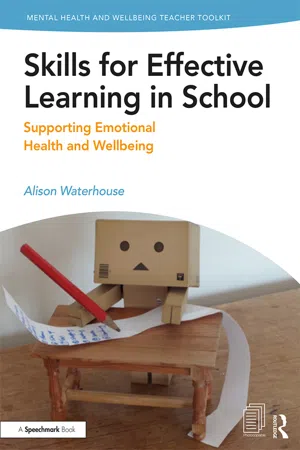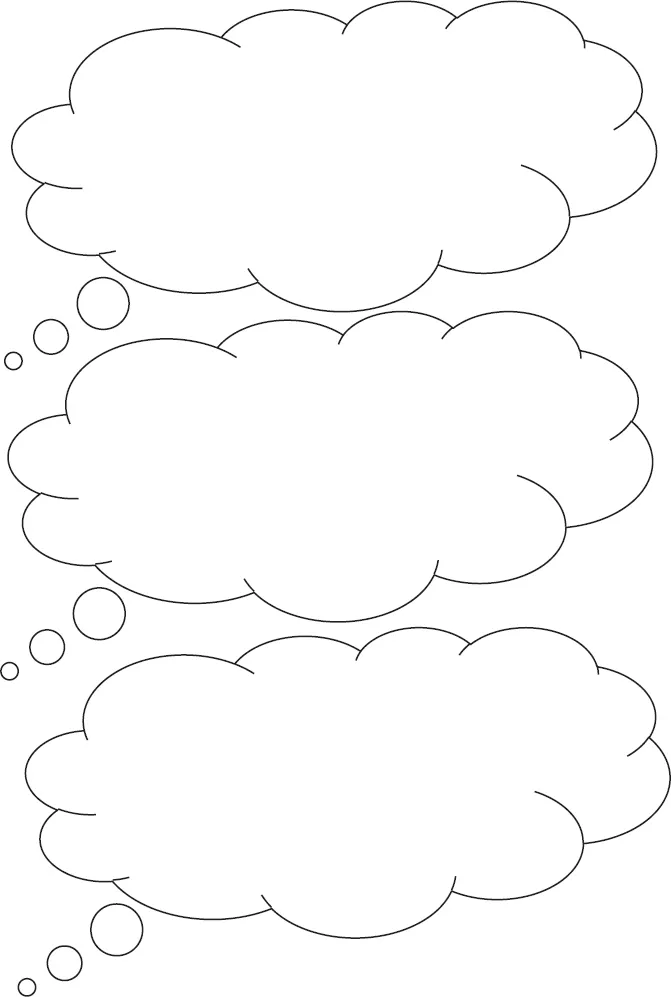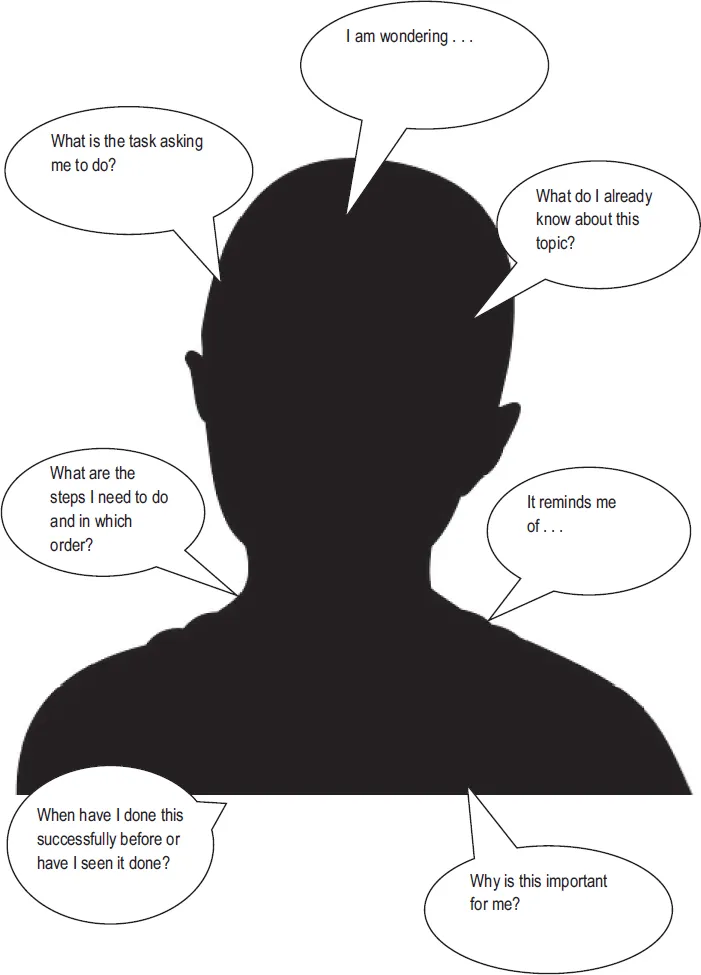
Skills for Effective Learning in School
Supporting Emotional Health and Wellbeing
- 266 pages
- English
- ePUB (mobile friendly)
- Available on iOS & Android
About This Book
One of the five books in the Mental Health and Wellbeing Teacher Toolkit, this practical resource focuses on the topic of 'Skills for Learning'. The book offers research-driven, practical strategies, resources and lesson plans to support educators and health professionals. This is a resource book for practitioners looking to have a positive impact on the mental health and wellbeing of the children and young people in their care; both now and in the future. Chapters span key topics including Metacognition, Learning Dimensions, Problem Solving and Cognitive Strategies. A complete toolkit for teachers and counsellors, this book offers:
• Easy to follow and flexible lesson plans that can be adapted and personalised for use in lessons or smaller groups or 1: 1 work
• Resources that are linked to the PSHE and Wellbeing curriculum for KS1, KS2 and KS3
• New research, 'Circles for Learning', where the introduction of baby observation into the classroom by a teacher is used to understand and develop self-awareness, skills for learning, relationships, neuroscience and awareness of others
• Sections on the development of key skills in communication, skills for learning, collaboration, empathy and self-confidence
• Learning links, learning objectives and reflection questions.
Offering research-driven, practical strategies and lesson plans, Skills for Effective Learning in School is an essential resource book for educators and health professionals looking to have a positive impact on the mental health and wellbeing of the children in their care; both now and in the future.
Frequently asked questions
Information

Chapter 1
Metacognition
Thinking about thinking! |  |
Session objectives

Session outcomes
- To be able to share our ideas about thinking.
- To be able to verbalise our thinking about learning.
- To be able to define metacognition.
Lesson plan
- Remind the children about a time when they watched their class baby ‘think’ about a task.
- Support the children to remember and think about a time when they watched their baby undertaking a task and their parent watching and thinking about them.
Task
- KS1: To explore where they think best and what they need to be able to think well.
- KS2: To create something using a selection of ‘junk’ and share their thinking process.
- KS3: To explore ways that they learn facts for a test and then create their own revision resource.
KS1
- Read the book I am Henry Finch by Alexis Deacon and Vivian Schwartz.
- Ask the children about how Henry felt about thinking and what he needed to be able to think.
- Explore where they think best and what they need to think.
- Ask the children to draw a thought that they had about the book.
KS2
- Read the book Going Places by Peter and Paul Reynolds.
- Discuss what they thought about the book.
- Ask the children to work individually or in small groups. Give each group the same variety of ‘junk’ and ask them to make something as a group.
- As they work, ask them to draw the different thoughts that they had inside the thought bubbles to create a thinking timeline.
- Create a small exhibition showing the creation and their thinking timeline.
- Discuss their thinking as a group after the exhibition. What did they learn about their thinking process?
KS3
- Share a short historical information sheet with the young people.
- Ask them to create a resource to help them learn the information for a test.
- Discuss their immediate thoughts – even if they are negative? Share them as a group.
- Ask the young people to work in small groups, pairs or on their own and document their thinking process using the metacognition question sheet.
- Ask the young people to create their resource.
- Share the resources and the metacognition question sheet as a walk around exhibition.
- Discuss what they have learnt from undertaking the task and from looking at what other people have done.
Resources
- I am Henry Finch by Alexis Deacon and Vivian Schwartz
- Thought bubbles
- Going Places by Peter and Paul Reynolds
- Thought bubble timeline
- Metacognition question diagram
Important points
Learning links
Reflection
| LEARNING DIMENSIONS | SOCIAL & EMOTIONAL SKILLS | ||
| Strategic awareness | Emotional literacy | ||
| Learning relationships | Neuroscience | ||
| Curiosity | Self-regulation | ||
| Creativity | Self-development | ||
| Meaning making | |||
| Changing & learning | |||
| Resilience | |||


Metacognition Question Diagram

Planning our project |  |
Session obj...
Table of contents
- Cover
- Half Title
- Title
- Copyright
- Dedication
- Contents
- Introduction
- Chapter 1 Metacognition
- Chapter 2 Learning dimensions
- Chapter 3 Problem solving
- Chapter 4 Cognitive strategies
- Bibliography